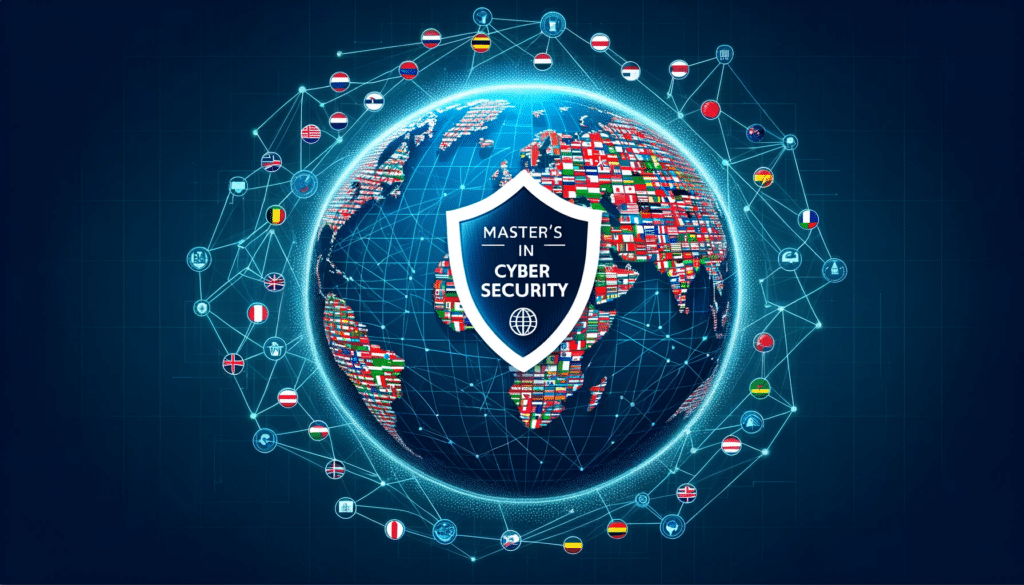
The global pandemic has brought about rapid changes and unexpected challenges across all sectors of society. Moreover, due to the increasing demands for digitalization, wherein the demand for both services and products to be readily available online is becoming a trend in the market, Cybersecurity has become even more vital.
According to the FBI’s Internet Crime Complaint Center (IC3), there’s been a 69% increase in cyber crime reports in 2020 compared to 2019, with estimated losses exceeding $4.2 billion. The more products and services are being transferred online, the higher the chances of attracting cybercriminals who would see opportunities when it comes to companies who are still not as familiar with increasing cyber security compared to the bigger firms.
On a more positive note, there is also so much potential in cyber security. Based on a report by advisory firm Gartner, the continuous demand for remote worker technologies and cloud security will also impact information security and risk management technology, leading to a potential growth of more than 12% and exceeding $150 billion in 2021.So now more than ever is the opportune time to get a Cyber Security master’s online when there is no GRE required.
Contents
What Is an Online Master’s in Cyber Security Degree?
The growing use of the Internet worldwide and the continuous improvements in technology have primarily contributed to the rising presence of colleges and universities that offer bachelor’s, master’s, and doctorate degrees online. As such, online degrees have grown popular among working adults as it allows flexible course schedules that provide instant relevance to their job, which would eventually lead to a more extensive network or a new set of career opportunities. In addition, students can choose to take courses fully or part-time, and whether they take classes synchronously or asynchronously is up to them.
Today, there is an increasing demand for people with expertise in Cybersecurity, as its continued growth is predicted. Cybersecurity involves protecting systems, networks, and programs from digital attacks – consequently dubbed as cyberattacks – which are usually aimed to access, change, or destroy sensitive information, extort money from users, or interrupt normal business processes.
Implementing effective cybersecurity measures is particularly challenging because there are more devices than people, and attackers are becoming more innovative. This prompts the demand for more cybersecurity professionals to use their knowledge and practical skills to defend proprietary or personal private information from being compromised by cybercriminals. In addition, the US Bureau of Labor Statistics has stated that many employers prefer candidates to have certification, which validates the knowledge and best practices required from information security analysts.
Some are general information security certificates, such as the Certified Information Systems Security Professional (CISSP), while others have a narrower focus, such as penetration testing or systems auditing.

How much does an online degree in Cybersecurity cost?
Cybersecurity Guide lists 18 universities offering the most affordable online cybersecurity master’s programs from 2020, ranging from $12,000 (or $400/credit for the 30-credit degree) to $24,984 (or $694/credit for the 36-credit degree). Some universities in Europe may offer the same programs equivalent to $34,02. It may look expensive, but an online degree is still a more affordable option than an on-campus setup. Plus, there are cybersecurity scholarships to earn a degree in Cybersecurity. Full-tuition scholarships may be competitive, but there are a number of quality scholarships that can be combined with other financial assistance options to make a fully-funded, if not partially, degree program possible.
Despite such costs, taking an online degree is still a significant personal and professional investment. It is bound to improve current skills, learn new trends, broaden your networks and linkages, and in time, lead to professional advancement, which may either be new career opportunities or promotions.
Average Salary for a Cybersecurity Master’s Graduate
Being one of the most in-demand fields in the job market today, anyone seeking a career in Cybersecurity and its related areas can expect to earn an average total compensation of $63,218 (inclusive of tips, bonus, and overtime pay) for an entry-level Cybersecurity Analyst with less than one year experience. Payscale also emphasizes that the average annual Salary for Cybersecurity Analysts is $76,511, while cybersecurity engineers earn $97,027, respectively.
Top paying industries for information security analysts include electronic shopping and mail-order houses, other information services, semiconductors, other electronic component manufacturing, automotive repair and maintenance, and legal services.
What Is the Job Outlook for Cybersecurity Master’s Degree Holders?
A master’s in Cybersecurity qualifies graduates for well-paying, in-demand careers in information technology. It is ideal for those looking to gain the technical expertise to detect and manage threats to sensitive and valuable data, networks, and computer systems to help them acquire new skills or take on more responsibility. As a result, employment in computer and information technology occupations is projected to grow to 11% from 2019 to 2029, much faster than the average for all occupations.
A master’s degree in Cybersecurity can prepare you to be a network security analyst, information security analyst, systems analyst, security officer, data processing manager, information security manager, and application development director.

Courses in Master’s in Cybersecurity
The master in cybersecurity program generally consists of core courses and elective courses that deal with basic, advanced, and specialized Cybersecurity aspects. These include an emphasis on various kinds of threat resolution and problem-solving measures. A course can consist of various components such as case studies, literature studies, group discussions, and quizzes. The evaluation method differs per course and usually consists of at least three evaluation methods: quizzes, midterms/papers, and finals/final papers. A course grants three credit hours and spans nine weeks, so you must gain a total of 36 credit hours to accomplish the graduate program. Per week you should count on approximately 20 hours of self-study, including the online sessions.
Enrolling in an online Master’s in Cybersecurity Program is an opportunity for you to explore the limitless potential of technology. Cybersecurity is a growing field that is becoming even more relevant today because of how rapid digitalization occurs across different sectors of society.
As a future Cybersecurity professional, you’ll be exposed to courses that will effectively teach you how to secure data across different systems. These online courses will immerse you in coursework that can enhance your problem-solving and critical thinking skills relevant to real-life scenarios.
Here is a list of some general courses associated with an online Master’s in Cybersecurity Program No GRE:
- Software Engineering
- Cryptography
- Cloud Computing
- Emerging Cyber Threats and Defenses
- Engineering Systems Reliability and Security
- Foundations of Cybersecurity
- Human Factors in Cybersecurity
- Threat Analysis
- Autonomous Systems and Database Management Systems
- Intrusion Detection Algorithms
- Secure Communication Protocols

Online Master’s Degree in Cyber Security Overview
The following summarizes the information to know for an online master’s in cybersecurity no GRE required.
Program Options/Time
Online Master’s in Cybersecurity Program
An online degree will typically take around two-three years (24-36 months) if taken full time to be completed. However, if you intend to take it part time along with other professional commitments, it may take longer depending on the course load you’re willing to enroll in for one school year. A part-time schedule gives you the flexibility to fulfill life’s responsibilities while you pursue a degree, so you want to make sure you accept a course load that fits your current commitments to work, family, etc.
Traditional On-Site Master’s in Cybersecurity Program
Completing an on-site master’s degree generally takes the same time as taking one online. On-site master’s degree programs in Cybersecurity also take between 1-2 years to complete, provided that you will be taking it full-time while following the recommended course load for each semester.
Accelerated Master’s in Cybersecurity Program
Enrolling in an accelerated Master’s Degree in Cybersecurity Program means you’ll be given the option to cover the curriculum quickly. In an accelerated program, you can earn your master’s degree in as little as 16 months. In this case, these programs will allow you to progress through your degree at a quick pace without sacrificing the quality of your education. This means you can take extra classes during regular semesters with no breaks between the academic years and semesters.

Benefits
Taking an online Master’s in Cybersecurity Program means you’ll be able to reap the benefits of an advanced degree in Cybersecurity with the added benefits of online education.
- Professional and Career Development at Your Own Pace
- Offers Job Prospects with Competitive Salary
- Cybersecurity Career Options Are Growing Faster Than Other Sectors
Costs
Enrolling in graduate studies is as much of an investment as it is a need these days, especially for professionals aiming to advance their careers in the cybersecurity field. Even though the benefits of completing any graduate study, especially an online Master’s in Cybersecurity (No GRE), will always outweigh the expenses, it’s still best to know both the pros and cons before officially committing yourself to a full-time obligation.
- Program Costs are Highly Variable
- Degrees in Cybersecurity Are Generally Expensive
- Tuition Fee Costs vs. Potential Job Salary
Most graduate students are wary of how much an online Master’s Degree in Cybersecurity will cost. However, these costs can now be easily mitigated by readily available scholarship grants and financial aids that suit your financial and academic needs.
Earning an advanced degree in Cybersecurity may not be the easiest path at first. However, with the rapid growth of Cybersecurity and Data Science, there is no longer a question of whether a degree in Cybersecurity will be worth it in the end or not. Cybersecurity is a fast-changing field with a lot of unexplored potentials. Taking a degree in one, much more an advanced one, means you’ll be committing yourself to a continuous learning curve that can offer educational and rewarding experiences that can help you advance in your chosen profession.
| University Name | Program’s Name | GRE Required? |
| Arizona State University | Master of Computer Science in Cybersecurity | Not Required |
| Saint Mary’s University of Minnesota | Master of Science in Cybersecurity | Not Required |
| Utica College | Master of Professional Studies in Cyber Policy and Risk Analysis | GMAT Score May be Required for Applicants with Below 3.0 GPA |
| Utica College | Master of Science in Cybersecurity – Computer Forensics | GMAT Score May be Required for Applicants with Below 3.0 GPA |
| Utica College | Master of Science in Cybersecurity – Cyber Intelligence | GMAT Score May be Required for Applicants with Below 3.0 GPA |